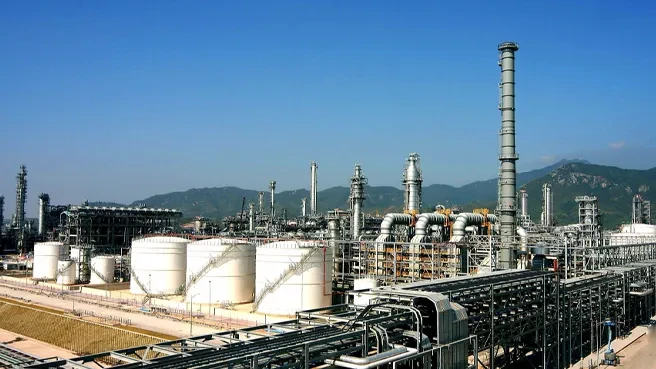
Understanding E472 Food Additives and Their Impact on Nutrition and Health
Understanding E472 The Multifaceted Food Additive
In the vast world of food additives, E472 stands out as a versatile and widely used component that plays various roles in enhancing the food we consume. E472 encompasses a range of esters of fatty acids, which are typically derived from glycerol and are classified as emulsifiers, stabilizers, or thickeners. This article delves into the nature, uses, safety, and culinary significance of E472 in our diets.
What is E472?
E472 is a collective term for a series of food additives that include various esters of mono- and diglycerides of fatty acids. It is often used to improve the texture, consistency, and shelf life of a wide variety of food products. The classification of E472 can vary, encompassing different types, including E472a (acetylated tartaric acid esters of mono- and diglycerides), E472b (esters of mono- and diglycerides of fatty acids with citric acid), and E472c (lactic acid esters of mono- and diglycerides). Each variant serves specific purposes based on its chemical composition.
Uses of E472 in Food Production
E472 is primarily utilized in processed foods, where it performs several critical functions. One of its main roles is as an emulsifier. Emulsifiers are substances that help mix ingredients that are typically unmixable, such as oil and water. This is particularly important in products like margarine and salad dressings, where a stable mixture is desired. The presence of E472 helps to maintain a consistent texture and prevent separation, which could adversely affect the product's appearance and quality.
Additionally, E472 is used as a stabilizer in ice creams and dairy products, where it helps prevent the formation of ice crystals, ensuring a smooth mouthfeel. It is also employed in baked goods to improve dough stability and enhance the freshness and shelf life of the product. Furthermore, its properties are beneficial in confectionery, where it contributes to the desired texture and overall palatability.
e472 food additive

Safety and Regulatory Guidelines
The safety of food additives is a primary concern for consumers and regulatory bodies around the world. E472 has undergone extensive evaluation by various health organizations, including the European Food Safety Authority (EFSA) and the Food and Drug Administration (FDA) in the United States. These organizations have deemed E472 safe for consumption within established limits. However, like any food additive, it is essential to consume it within the recommended daily intake levels to avoid any potential adverse effects.
One notable aspect of E472 is that it is often derived from vegetable oils, making it suitable for various dietary preferences, including vegetarian and vegan diets. However, it is crucial for consumers to check ingredient labels if they have specific dietary restrictions or allergies, as some sources of E472 may come from animal fats.
Culinary Significance
In the culinary world, E472 may not be a household name, but its impact is undeniably significant. It allows chefs and food manufacturers to create products that are not only appealing in taste but also visually enticing. For home cooks, recognizing the function of E472 can inspire a greater understanding of the science behind cooking and baking. Furthermore, the ability of E472 to enhance texture and stability is particularly valuable in creating gourmet dishes that require precision and consistency.
Conclusion
E472 is a multifaceted food additive that plays a crucial role in the food industry. From improving the texture of emulsions to extending the shelf life of baked goods, its contributions are vital for both producers and consumers alike. As food technology continues to evolve, understanding additives like E472 can provide valuable insights into food preparation and safety. While beneficial, it remains essential for consumers to maintain a balanced diet and be aware of what goes into their food, ensuring that every bite is not only enjoyable but also mindful of their health and dietary preferences.
-
Buy High-Quality Trichloroisocyanuric Acid for Sale | TCCA 90% SupplierNewsAug.30,2025
-
Pure Sodium Dichloroisocyanurate Dihydrate | Powerful DisinfectantNewsAug.29,2025
-
Industrial Chemicals: Quality & Purity for Every IndustryNewsAug.28,2025
-
Nitrile Rubber Honoring Strict Production StandardsNewsAug.22,2025
-
Aspartame Ingredients Honoring Food Safety ValuesNewsAug.22,2025
-
Fertilizer for Balanced Plant NutritionNewsAug.22,2025
-
Cyanide Gold Processing with High Purity AdditivesNewsAug.22,2025
Hebei Tenger Chemical Technology Co., Ltd. focuses on the chemical industry and is committed to the export service of chemical raw materials.
-

view more DiethanolisopropanolamineIn the ever-growing field of chemical solutions, diethanolisopropanolamine (DEIPA) stands out as a versatile and important compound. Due to its unique chemical structure and properties, DEIPA is of interest to various industries including construction, personal care, and agriculture. -

view more TriisopropanolamineTriisopropanolamine (TIPA) alkanol amine substance, is a kind of alcohol amine compound with amino and alcohol hydroxyl, and because of its molecules contains both amino and hydroxyl. -

view more Tetramethyl Thiuram DisulfideTetramethyl thiuram disulfide, also known as TMTD, is a white to light-yellow powder with a distinct sulfur-like odor. It is soluble in organic solvents such as benzene, acetone, and ethyl acetate, making it highly versatile for use in different formulations. TMTD is known for its excellent vulcanization acceleration properties, which makes it a key ingredient in the production of rubber products. Additionally, it acts as an effective fungicide and bactericide, making it valuable in agricultural applications. Its high purity and stability ensure consistent performance, making it a preferred choice for manufacturers across various industries.





